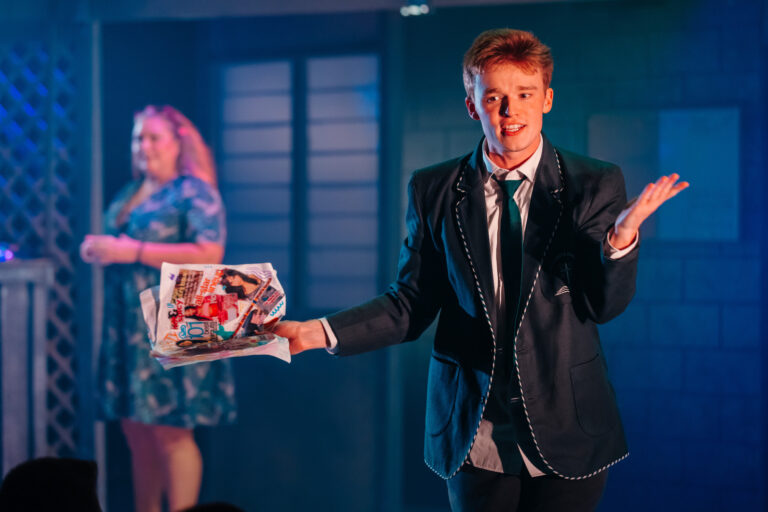
Newspapers fire warning shot for press freedoms
By ALLISON HORE
On Monday 21 October, the front pages of newspapers across Australia were splashed with black censorship bars – an unprecedented group warning from the media about the country’s eroding press freedoms and tightening laws around whistleblowers.
The move was part of a new campaign by Australia’s Right to Know (ARTK), an organisation that was formed in 2007 and brings together most major media organisations in Australia. The goal is to engage the Australian public and lobby the government on issues related to media freedom and freedom of information.
Between 2018 and 2019, Australia dropped two places in the World Press Freedom Index. ARTK hope that campaign this will draw public awareness to issues of media freedom in Australia and pressure the government into “into lifting its veil of secrecy”. It comes after a number of high-profile cases including the raiding of the ABC offices in Sydney and the home of News Corp journalist Annika Smethurst in June.
Criminalising whistleblowers
One of the challenges faced by journalists in Australia, and highlighted by the campaign, are terrorism and national security laws, which make reporting on related issues next-to-impossible. Over the last 20 years the Australian government has passed more than 60 pieces of secrecy-related legislation, citing “national security” as the reason. The laws effectively criminalise whistleblowing.
“Australia is at risk of becoming the world’s most secretive democracy,” said David Anderson, Managing Director of the ABC. “We’ve seen the public’s right to know slowly erode over the past two decades, with the introduction of laws that make it more difficult for people to speak up when they see wrongdoing and for journalists to report these stories.
“No one is above the law but something in our democracy is not working as it should when we fail to protect people acting in the public interest.”
Michael Miller, News Corp Australasia’s Executive Chairman, agrees and thinks that the public should not trust a government that is withholding information.
“Australians should always be suspicious of governments that want to restrict their right to know what’s going on,” he said.
This month ARTK commissioned a nationally-representative survey of over 1000 Australians about issues relating to media freedom, whistleblowers and government transparency. 87% of those who participated in the survey said they think it is important for Australia to be an “open democracy where the public is kept as informed as possible.” Only 37% thought that this already described Australia.
The ARTK research reveals the public also stand with whistleblowers. 88% of those surveyed said that people who call out governmental or institutional wrongdoing play “a vital role in society” and 80% said that they don’t think whistleblowers should be treated as criminals, even if in telling the truth they are breaking a law.
Not-so-free information
Another challenge for journalists in Australia, which the campaign aims to highlight, is the handling of Freedom of Information requests. In 2015 the Sydney Morning Herald made a request under NSW Freedom of Information (FOI) laws for information on how much Destination NSW had spent on events like Vivid and the Sydney Festival.
The request was initially denied, but after more than four years and hundreds of thousands of taxpayers’ dollars spent on legal fees fighting Freedom of Information efforts, documents obtained by the Herald revealed Destination NSW asked for free tickets and corporate hospitality in exchange for state government funding, and had funded failed events.
The four-year process it took for the Herald to obtain information from Destination NSW regarding funding for events in Sydney is just one instance of inadequate FOI request handling highlighted in the ARTK campaign.
Hugh Marks, CEO of Nine Entertainment, which own the Herald and other Fairfax mastheads, says that this is something that shouldn’t just concern Australia’s major newsrooms, but rather the whole Australian public.
“This is not just about police raids of journalists’ homes and our nation’s newsrooms,” he explained. “This is much bigger than the media. It’s about defending the basic right of every Australian to be properly informed about the important decisions the government is making in their name.”
While the most publicised attacks on media freedom have been aimed at large media organisations, the restrictions on media freedom are also pressing for smaller independent publications like City Hub. Public interest journalism and community-related investigative journalism rely on whistleblowers feeling empowered to speak up and an effective FOI process. And, smaller independent publications do not have the same legal resources at hand to defend themselves and their whistleblowers or to push for access to crucial documents that larger organisations do.
ARTK is hopes that the public will engage with the campaign and encourages those who are concerned about media freedom to get in touch with their member of Parliament, join the campaign at yourrighttoknow.com.au or include “#RightToKnow” in social posts..









